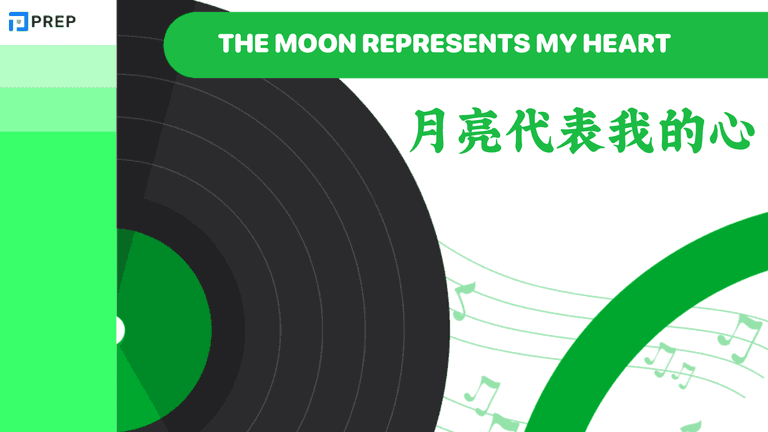Zhou in Chinese - The Definitive Guide to 周, 州, 粥, 洲, and 舟
When you encounter the sound zhou in Chinese conversation or text, you face one of Mandarin's most common pronunciation puzzles. Five distinct characters share this exact pronunciation, each carrying vastly different meanings that span time, geography, cuisine, and culture. Understanding these characters represents a crucial milestone in your Chinese language journey, transforming confusion into clarity and hesitation into confidence.
I. Guide to Differentiating the 5 Common Zhou in Chinese
The challenge of distinguishing zhou in Chinese becomes manageable when you understand each character's primary domain and visual clues. Rather than memorizing isolated definitions, successful learners develop pattern recognition skills that connect sound, meaning, and context into a coherent system.
-
周 (zhōu) - Time & People Domain Primary zhou meaning in chinese include weekly cycles (周末 weekend, 上周 last week), anniversaries (周年), and the common surname Zhou. Memory trigger: circular completeness representing cycles and thoroughness.
-
州 (zhōu) - Administrative Geography Represents states and administrative regions like 加州 (California) and major Chinese cities such as 广州 (Guangzhou). Memory trigger: land-based administrative divisions without water boundaries.
-
洲 (zhōu) - Continental Geography Exclusively refers to continents like 亚洲 (Asia) and 欧洲 (Europe). Memory trigger: the water radical (氵) indicates landmasses surrounded by oceans.
-
粥 (zhōu) - Food & Cuisine Describes various types of porridge including 白粥 (rice porridge) and 小米粥 (millet porridge). Memory trigger: the rice radical (米) signals grain-based foods.
-
舟 (zhōu) - Literary & Ceremonial Boats Appears in classical contexts like 龙舟 (dragon boat) and idioms such as 同舟共济. Memory trigger: poetic vessel shape for elevated language register.
II. 周 (zhōu): The 'Zhōu' of Time, People, and Completeness
Among the five zhōu characters, 周 carries the heaviest functional load in modern Chinese, appearing in countless daily expressions and fundamental concepts. This character embodies the notion of cycles, completeness, and thoroughness, making it indispensable for temporal expressions and abstract concepts that require precision and depth.
1. Zhou in Chinese 周 as A Measure of Time
The temporal applications of 周 (zhōu) extend far beyond the basic concept of "week," encompassing sophisticated expressions of cyclical time and significant milestones. Chinese speakers navigate time through several key expressions that demonstrate this character's temporal versatility:
Basic Weekly Navigation:
-
周末 (zhōumò) - weekend, literally meaning "week's end"
-
上周 (shàng zhōu) - last week, anchoring past temporal reference
-
下周 (xià zhōu) - next week, establishing future temporal planning
Advanced Cyclical Concepts:
-
周期 (zhōuqī) - cycles or periods in scientific, economic, and natural contexts
-
周年 (zhōunián) - anniversaries marking complete yearly cycles for marriages, founding dates, or historical events
Understanding how to pronounce zhou in Chinese correctly enhances your ability to use these essential time expressions naturally and confidently. The character's role in temporal expression reflects Chinese cultural emphasis on cyclical thinking rather than linear progression, offering access to a fundamental worldview that values completion, return, and renewal over simple forward movement.
2. Zhou in Chinese 周 As a Famous Surname and Dynasty
The Zhou Dynasty (周朝, Zhōu cháo) stands as the longest-ruling dynasty in Chinese history, establishing philosophical and political foundations that continue influencing Chinese culture today. This historical significance elevates 周, zhou in Chinese , beyond simple nomenclature into a symbol of cultural continuity and intellectual achievement.
Historical Impact:
-
Longest-ruling dynasty in Chinese history (over 800 years)
-
Foundation for Confucian philosophy and governance systems
-
Establishment of the Mandate of Heaven political concept
Contemporary Presence:
-
Political leaders like Zhou Enlai demonstrating continued prominence
-
Entertainment figures and business leaders maintaining the surname's visibility
-
Widespread geographic distribution reflecting deep ancestral roots
When you encounter 周 as a surname, you connect with over three millennia of Chinese civilization. This character represents not merely a family name but a direct link to foundational Chinese philosophy, governance systems, and cultural practices that shaped East Asian civilization.
3. Zhou in Chinese 周 as a Concept of 'All-Around'
The abstract applications of 周 (zhōu) reveal sophisticated concepts of completeness, thoroughness, and comprehensive attention to detail. These expressions demonstrate how Chinese thinking embraces totality rather than partial coverage:
-
周围 (zhōuwéi) - surroundings or vicinity, encompassing the complete environment that encircles a central point
-
周到 (zhōudào) - thoughtfulness or consideration that leaves nothing overlooked, anticipating every possible need before concerns arise
-
众所周知 (zhòng suǒ zhōu zhī) - "as everyone knows" or "widely known," suggesting knowledge that has spread comprehensively throughout a community
III. The Geographical 'Zhōu's: Distinguishing 州 from 洲
Geographic terminology in Chinese creates one of the most common confusion points for learners encountering zhōu sounds. The distinction between 州 (zhōu) for administrative regions and 洲, zhou in Chinese, for continents requires understanding both scale and visual recognition skills that separate these closely related concepts.
1. 州 (zhōu): Mapping out States, Prefectures, and Famous Cities
The character 州, zhou in Chinese, serves dual functions in modern Chinese geography, translating foreign state names and identifying significant Chinese cities with historical administrative importance. This versatility demonstrates how Chinese adapts to both international and domestic geographical needs.
Foreign State Translations:
-
加利福尼亚州 (Jiālìfúníyà zhōu) - California
-
纽约州 (Niǔyuē zhōu) - New York State
-
德克萨斯州 (Dékèsàsī zhōu) - Texas
Major Chinese Cities with Administrative Heritage:
-
广州 (Guǎngzhōu) - literally "broad administrative region," capital of Guangdong Province
-
杭州 (Hángzhōu) - administrative center in Zhejiang Province
-
福州 (Fúzhōu) - capital of Fujian Province
2. 洲 (zhōu): Spanning Continents from Asia (亚洲) to Europe (欧洲)
Continental geography demands 洲 (zhou in Chinese), which exclusively refers to the world's major landmasses surrounded by oceans and seas. Chinese creates systematic geographical terminology through consistent character usage across all continents.
The Seven Continents in Chinese:
-
亚洲 (Yàzhōu) - Asia
-
欧洲 (Ōuzhōu) - Europe
-
北美洲 (Běi měi zhōu) - North America
-
南美洲 (Nán měi zhōu) - South America
-
非洲 (Fēizhōu) - Africa
-
澳洲 (Àozhōu) - Australia/Oceania
-
南极洲 (Nánjí zhōu) - Antarctica
3. How a Simple Radical (氵) Differentiates the Two
The presence or absence of the water radical (氵) provides the most reliable method for distinguishing between these geographical zhou in Chinese characters. This visual distinction creates an immediate recognition system that operates faster than conscious translation.
Visual Recognition Pattern:
-
洲 (continent) = water radical (氵) present → landmasses surrounded by water
-
州 (state/administrative region) = no water radical → land-based administrative boundaries
This visual mnemonic transforms a potentially confusing distinction into a simple recognition pattern. When you see the water radical, think "surrounded by water" and recall continental scales. When the water radical is absent, consider administrative boundaries and state-level geography. Your eye learns to identify the water radical instantly, guiding your brain toward the correct meaning without deliberate analysis.
IV. The Cultural Zhou in Chinese: 粥 (Food) and 舟 (Boats)
Cultural contexts reveal two additional zhou in Chinese characters that enrich your understanding of Chinese traditions, cuisine, and literary expression. While less frequently encountered than their temporal and geographical counterparts, 粥 (porridge) and 舟 (boat) carry deep cultural significance that connects language learning with authentic Chinese experiences.
1. 粥 (zhōu): More Than Just Porridge – A Staple of Chinese Cuisine
The character 粥 (zhou in Chinese) represents far more than simple porridge, embodying a cornerstone of Chinese culinary culture that spans breakfast tables, comfort food traditions, and medicinal practices. Chinese families begin countless mornings with warm bowls of rice porridge, often enhanced with vegetables, meat, or preserved ingredients that transform basic grains into nourishing meals.
Daily Nutritional Roles:
-
Morning staple across Chinese households nationwide
-
Comfort food for children and elderly family members
-
Base ingredient for creative culinary combinations
Medicinal and Healing Functions:
-
Preferred recovery food for illness due to easy digestion
-
Traditional Chinese medicine ingredient for specific health conditions
-
Gentle nourishment that supports digestive wellness
Common Regional Variations:
-
白粥 (bái zhōu) - plain rice porridge, the foundational version
-
小米粥 (xiǎomǐ zhōu) - millet porridge, popular in northern China
-
瘦肉粥 (shòu ròu zhōu) - lean meat porridge for protein enhancement
-
青菜粥 (qīng cài zhōu) - vegetable porridge for balanced nutrition
The rice radical (米) embedded within 粥's structure provides immediate visual identification of its culinary nature, connecting the character to grain-based foods and eliminating confusion with non-food zhōu options. This visual clue makes recognition automatic once you understand the connection between radicals and meaning categories.
2. 舟 (zhōu): The Literary Boat of Poetry, Idioms, and Festivals
The character 舟 (zhou in Chinese ) occupies a specialized niche in Chinese expression, appearing primarily in literary contexts, traditional festivals, and classical idioms rather than everyday conversation about water transportation. Modern Chinese typically uses 船 (chuán) for boats and ships, reserving 舟 for elevated language registers that carry cultural weight.
Contemporary Cultural Applications:
-
龙舟 (lóng zhōu) - Dragon Boat Festival racing vessels
-
Traditional festival celebrations connecting communities with heritage
-
Ceremonial contexts that honor historical maritime traditions
Literary and Philosophical Usage:
-
Classical poetry referencing journeys and transitions
-
Metaphorical expressions about life's voyage and destiny
-
Scholarly texts discussing ancient transportation methods
Essential Idioms and Expressions:
-
同舟共济 (tóng zhōu gòng jì) - "crossing the river in the same boat" meaning mutual assistance during difficulties
-
舟车劳顿 (zhōu chē láo dùn) - fatigue from travel by boat and cart, describing exhaustion from long journeys
Dragon Boat Festival celebrations showcase 舟's most visible contemporary application, where ornate racing boats commemorate ancient traditions and community unity. These festivals demonstrate how 舟 maintains cultural relevance beyond literary usage, connecting modern communities with historical practices that span millennia of Chinese civilization.
V. A Final Thought
Mastering the five zhou in Chinese characters represents more than memorizing pronunciations and meanings—it demonstrates your growing sensitivity to context, visual patterns, and cultural nuances that define fluent Chinese communication. Each character opens pathways to different aspects of Chinese experience, from temporal rhythms and geographical awareness to culinary traditions and literary heritage.
The journey from confusion to clarity with homophones like these zhōu characters mirrors the broader Chinese learning experience. What initially appears overwhelming becomes manageable through systematic understanding, pattern recognition, and cultural context. Your ability to distinguish these characters confidently signals growing mastery that extends far beyond individual vocabulary items into comprehensive language competence.

Hi I'm Chloe, and I am currently serving as an Product Content Administrator at Prep Education. With over five years of experience in independent online IELTS study and exam preparation, I am confident in my ability to support learners in achieving their highest possible scores.
Comment
Premium content
View allPersonalized roadmap
Most read












